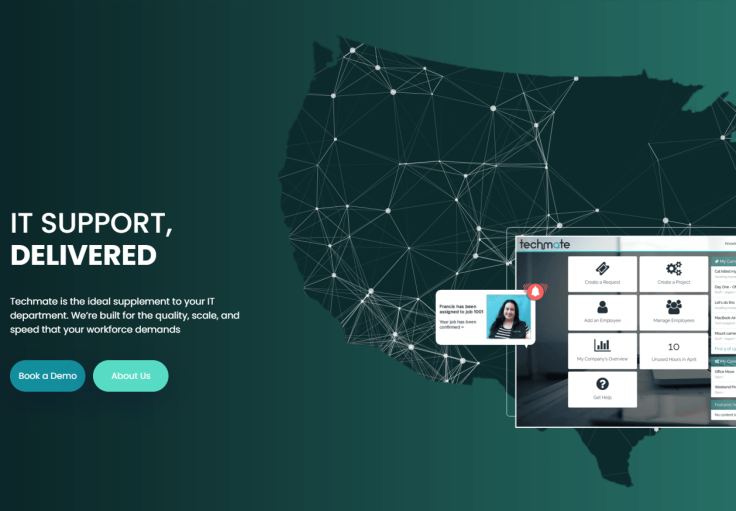How Techmate Is Taking On Our New Remote Reality

The current state of the workforce is practically unrecognizable. As the digital age dawned on us, the ability to work remotely became a more viable option for many organizations, and by the 2010s, more and more remote working opportunities were available to us.
With the COVID-19 pandemic, which hit in 2020, remote working became necessary in many parts of the world due to lockdown measures. For the first time, we were able to envision a reality where most if not all of the workforce was leveraging IT tools to deliver their work remotely. The effects of this migration have been interesting; many workers report more job satisfaction working from home due to reduced commutes and many organizations do not plan to return to the past of a majority in-person workforce.
With this new reality comes its own set of challenges, specifically, managing decentralized workforces in a seamless way without sacrificing long-term productivity. One crucial component of servicing a decentralized workforce is offering technical support to a global team. How does tech support evolve with this new age of remote work?
Seeing the market’s needs, Techmate, an IT resource for decentralized workforces, has been exploding, stewarded by co-founders Nicole Beales and David Brock.
How Techmate Works
Companies in the US, UK, or Canada, can access one-hand-to-hold IT support from a dedicated Techmate dashboard. Existing IT departments might find their resources stretched thin by an expanding workforce whose location will provide a unique set of challenges.
Techmate essentially acts as an extension of these IT departments and has its own IT professionals on hand to support them at all times. Typically, a company would have to hire and train new IT staff as their workforce expands, but Techmate saves them time, energy, and resources associated with all of these.
Techmate offers six major support areas for staff, including desktop, hardware, network, audio/visual, projects, and staff augmentation.
For the desktop aspect, Techmate supports the onboarding and offboarding of staff and provides help desk support for desktop users and in-person escalation. For hardware issues, breaks are attended to and the times when divide swaps or upgrades are needed. Setup and connectivity issues are handled under network issues. For audio/visual, common problems like Zoom connectivity and general troubleshooting can be handled.
Periodic site visits can be handled by the Techmate team and infrastructure refreshing and desktop reimaging.
The Workforce of the Future
It is clear that even in a post-pandemic world, the workforce is not going back to what it used to be. As companies embrace remote working, Techmates solutions become even more critical. IT departments could not have anticipated this much of a shift in office culture in such a short amount of time, and adjusting to it will require support, which is what Techmate is here to provide.
Rather than dealing with the more common and pedestrian IT needs of a workforce, IT departments can focus on more pressing issues. Employees also benefit because they can receive instant support for any IT issues they are facing. Instant support promotes a seamless work environment and smoots the transition to remote work.
Techmate itself has had to go through this transition. Initially a New York-based company, co-founder Nicole Beales had to quarantine her family in Kansas City, eventually establishing an office there. Building on the experienced benefits of remote work, Techmate has raised over $1.2 million and is planning an expansion into the Midwest. They now have clients and technicians across the midwestern United States and are continuing to grow.
"Our goal is to continue growing these markets, plus add several more where our current clients have expressed a need to support their exploding workforces," Beals said, adding that the new round of funding would support these expansion goals and that working remotely actually aided in their fundraising efforts, allowing them to work 12 to 14 hours a day.
This expansion simply meets the growing need for remote support for distributed workforces, and as this becomes our new reality, this demand is expected to grow even more.



















